CIMAM 2022. Day 2: Unlocking History and New Narratives
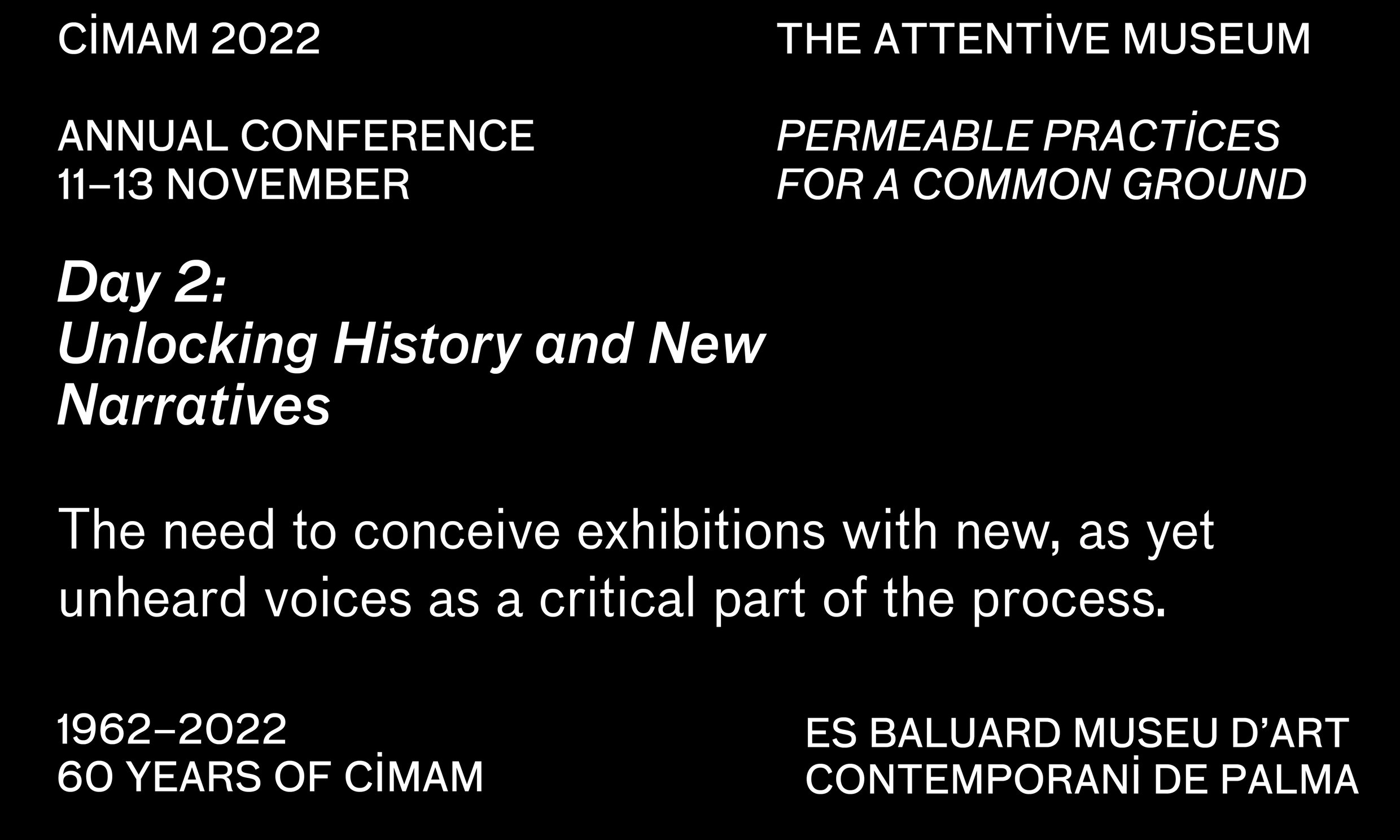
Day 2: Unlocking History and New Narratives
The second day of the CIMAM Annual Conference will update new narratives and forms of knowledge in which inequalities in terms of race, gender, or social exclusion do not repeat the discourses that the hegemonic museum inherited from the postulates of the nineteenth century and trying to present the museum as an integrating entity and in coalition with the cultures that have not had a place or visibility.
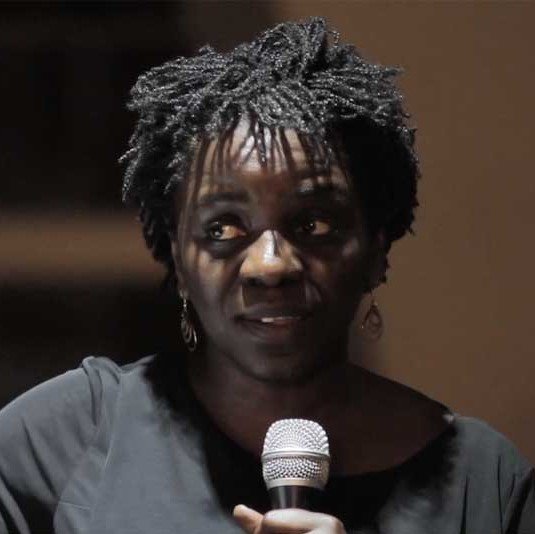
Keynote
Denise Ferreira da Silva, Prof. Dr., University of British Columbia, Vancouver, Canada
After It's All Said
Throwing blacklight onto the contemporary art stage, the artwork and practices, in this presentation Denise Ferreira da Silva comments on artistic interventions that confront the colonial, racial, cisheteropatriarchal matrix of the transparent I, the figuring of the modern subject presupposed in the position of the appreciator. She focuses on how these radical interventions not only refuse to mean, to signify, immediately but they assemble artistic forms that signal a position of enunciation that is unnamable, ungraspable, un-visible and as undeterminable, and yet as effective as that of the presumed subject of appreciation. Whatever it is called, if a name is needed, this approach, reading of contemporary art through the lens of refusal, that is, as a scene of confrontation, does not fit very well into conventional descriptions of (aesthetic/art) criticism and (theoretical) critique; it does not immediately mobilize or easily recall any critical theoretical orientation.
BIOGRAPHY:
Director of the Social Justice Institute at the University of British Columbia, she is the author of Toward a Global Idea of Race (University of Minnesota Press, 2007), A Dívida Impagavel (Oficina da Imaginaçāo Política and Living Commons, 2019) and co-editor (with Paula Chakravartty) of Race, Empire, and the Crisis of the Subprime (Johns Hopkins University Press, 2013). She has had several articles published in leading interdisciplinary journals, such as Social Text, Theory, Culture & Society; PhiloSOPHIA; Griffith Law Review; Theory & Event; The Black Scholar. Her artistic works include the films Serpent Rain (2016), 4Waters-Deep Implicancy (2018), Soot Breath/Corpus Infinitum 2020 (in collaboration with Arjuna Neuman), and the relational art practices Poethical Readings and Sensing Salon, in collaboration with Valentina Desideri. She lives and works on the traditional, ancestral and unceded territory of the hən̓q̓əmin̓əm̓-speaking Musqueam people.
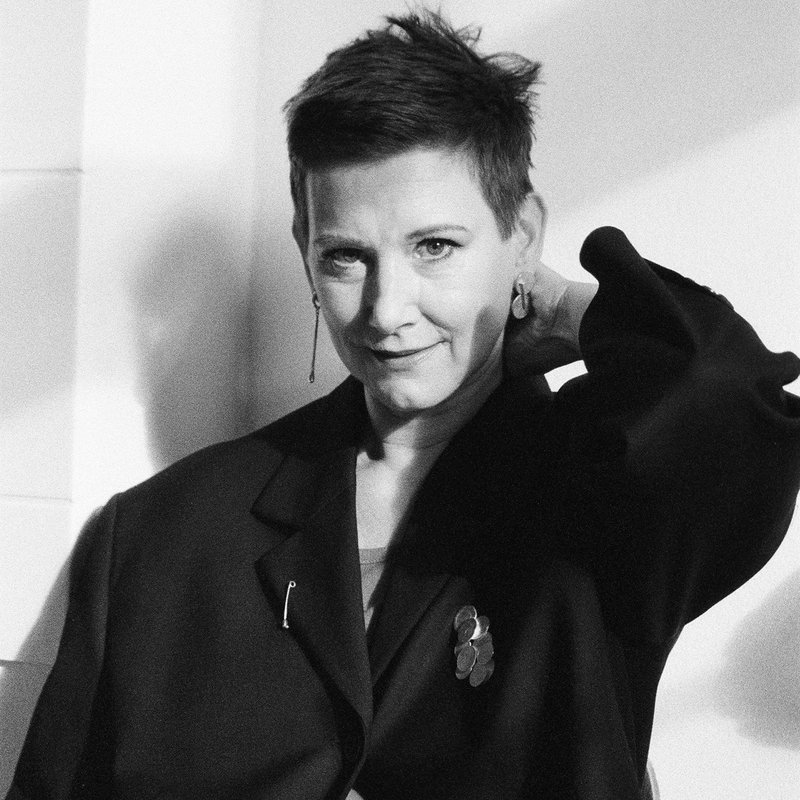
Perspective
Clémentine Deliss, Associate Curator, KW Institute for Contemporary Art, Berlin, Germany
The Museum of Remediation
During the lockdowns in 2020-21, museums in Europe were largely closed. As the pandemic waned, entry was restricted to the vaccinated, and precautionary measures prevented both the production and consumption of exhibitions. The impact of this condition in 2022, coupled with the effects of the war in Ukraine, and global ecological questions occasions a necessary rethink of the sustainability and timeframes of exhibition programming, and of how a museum can care for, protect, and educate its visitors, especially those in a liminal state between trauma and joy. The Museum of Remediation addresses the central role played by collections in the redesign of museums and exhibitions in the twenty-first century. While restitution takes its course, remediation addresses the looted cultural heritage of the Global South still held in serial quantity in European museums. In their multiplicity, these collections can become the metabolic generator of inclusive public education. Segments of diverse collections are brought together, placed on purpose-built mobile furniture, and studied in different constellations. Nothing is seen in isolation or atomized by a singular disciplinary norm of contextualization. Through an alternative implementation of the collection, museums fulfill their role as civic venues for democratic inquiry, for the learning and flourishing of every individual, regardless of age, class, race, or education. The public shifts from consumer to student, and exhibits become channels of decolonial healing and transdisciplinary innovation. To enter a museum, no exam is necessary.
BIOGRAPHY:
Dr. Clémentine Deliss works across the borders of contemporary art, curatorial practice, independent publishing, and critical anthropology. She is currently Global Humanities Professor of History of Art, University of Cambridge, and Associate Curator of KW Institute for Contemporary Art, Berlin, where she is developing the Metabolic Museum-University. Between 2010–15, she was the director of Weltkulturen Museum in Frankfurt, where she instituted a new research lab for post-ethnographic research and developed several exhibitions including Object Atlas – Fieldwork in the Museum (2011); Foreign Exchange (or the stories you wouldn’t tell a stranger) (2014); and El Hadji Sy – Painting, Performance, Politics (2015). In 2016, she directed Dilijan Arts Observatory in Armenia for the exhibition Hello World. Revising a Collection, National Galerie im Hamburger Bahnhof, Berlin. In the same year, she was Visiting Professor at the Ecole nationale supérieure d’arts Paris-Cergy and held an International Chair at the Laboratoire d’excellence des arts et médiations humaines, Université Paris 8 and Centre Georges Pompidou. In 2018–19, she was Interim Professor of Curatorial Theory and Dramaturgical Practice at the Karlsruhe University of Arts and Design. Between 2019–20, she taught at the University of Fine Arts, Hamburg. She is a Fellow of the Institute of Advanced Study, Berlin, and mentor of the Berlin Program for Artists and Faculty at Large of SVA Curatorial Practice. Her book The Metabolic Museum (2020, Hatje Cantz) came out in Russian translation in 2021, published by Garage Museum, Moscow.
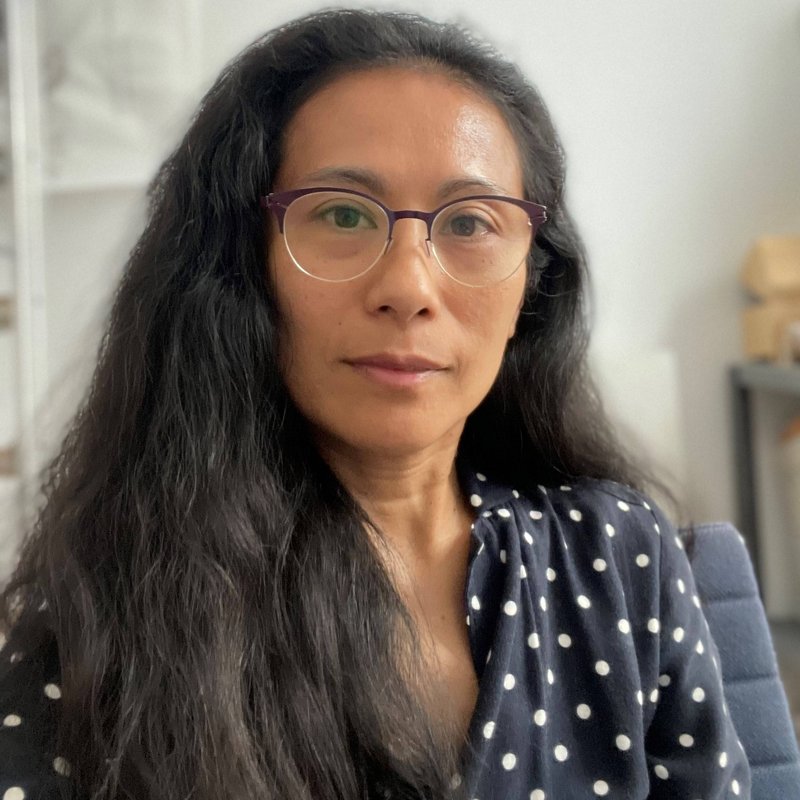
Perspective
Sandra Gamarra Heshiki, Visual Artist, Independent, Lima, Peru/Madrid, Spain
Uncomfortable Museum
José María Arguedas, Peruvian writer and anthropologist, presents the mestizo in his work as a mediator between two cultures that, in their opposition, must be complementary to coexist. This mestizo presents infinite gradations as he positions himself in a back-and-forth space, where he is constantly colliding and renegotiating between two sensibilities. The mestizo is not understood as the common result of a unifying project. Parting from this ambiguous place, Arguedas undertakes the vital task of collecting native knowledge from his Andean sensibility, while, from his Western sensibility, he writes novels that portray the Andes for a reader unfamiliar with it. He understands writing as a battlefield and transforms the difficulties of translation into a place to experiment possible solutions for coexistence.
The land on which the art museum is located is not a common ground, it is a space to propose encounters and disagreements, where conflicts have to be present to jointly activate possible models of coexistence.
BIOGRAPHY:
Sandra Gamarra Heshiki (1972) was born in Lima, Gamarra, and studied Fine Arts at the Pontifical Catholic University of Peru. In 2003, she moved to Madrid to complete her art studies, where she developed her work until 2019. She utilizes painting in a figurative way to conceptually cross-examine art and its mechanisms. Based on appropriations, her work acts as a mirror that displaces exhibition formats, alters the circulation of images, and subverts the ownership of culture, as well as the narrative between art and its viewer. Within this field of investigation, her Peruvian background adds a syncretic gaze where pre-Columbian, colonial, and Western cultures collide. Some of her recent exhibitions recontextualize art genres such as the landscape, self-portrait, and still life. In 2002, in response to the absense of a contemporary art institution in Lima, she created LiMac, a fictitious museum that first established itself with its logo on merchandize (pencils, erasers, mugs, and bags). Since then, LiMac has produced collections, exhibitions, publications, an architectural project, and a website (www.li-mac.org). She lives and works in Lima.
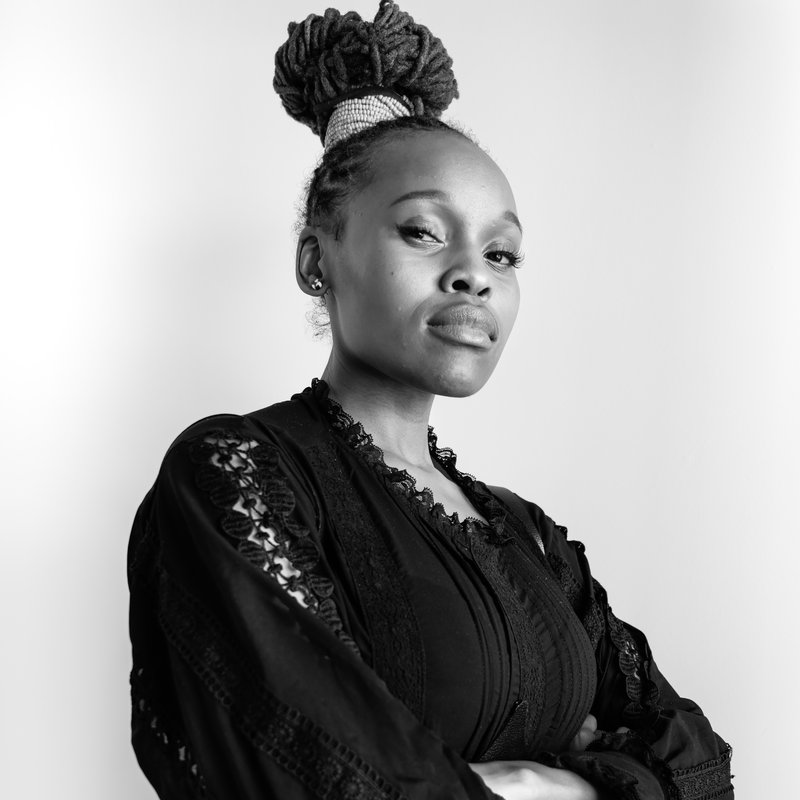
Perspective
Sethembile Msezane, Visual Artist, Msezane Studios, Cape Town, South Africa
The Seed is a Memory of the Fruit
Sethembile Msezane is part of a generation of youth that draws on traditional and spiritual teachings from her culture in creating ‘living’ and ‘ephemeral’ contemporary art that often challenges the idea of permanence in museum practice.
Her work questions how we can use ecologies of nature as a metaphor in rethinking permanence and impermanence in the preservation of knowledge. Just as the seed recognizes its origin is within the fruit, preserving knowledge also means sustaining communities.
Msezane recognizes elders as keepers of time and memory in our communities, asking that we consider them as living libraries.
The colonial project of excavating and harvesting without benefitting its source cannot continue to exist. If the museum is to remain relevant and truly archive our histories, ongoing connections to communities need to be established and maintained. In so doing, museum practice will not only benefit from the expertise of living libraries, but they will contribute to these elders remaining purposeful to younger generations in their communities, thereby investing in the cross-pollination between generations in re-imagining the future.
BIOGRAPHY:
Sethembile Msezane is an artist who uses performance, photography, film, sculpture and drawing to create works that address spiritual and political symbolism, and African knowledge systems. Drawing on her dreams, she asks questions about ancestral memory and the processes by which mythmaking is used to construct history, highlighting the absence of the black female body in both the narratives and physical spaces of historical commemoration.
She recently participated in the 14th Dak’art Biennale (2022), and previously has been a UEA Global Talent Fellow hosted by the Sainsbury Research Unit and Sainsbury Centre (2021), a Mellon Artist Residency Fellow in partnership with the University of Stellenbosch (2020), and a OkayAfrica 100 women 2018 Honoree. She was a TEDGlobal Speaker in Ausha, Tanzania (2017), a TAF & Sylt Emerging Artist Residency Award winner (2016), and was the first recipient of the Rising Light award at the Mbokodo Awards (2016). Sethembile Msezane (b. 1991) lives and works in Cape Town, South Africa.